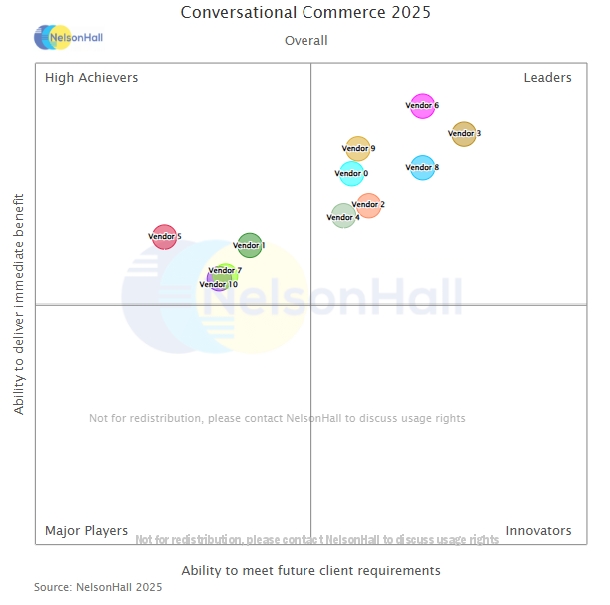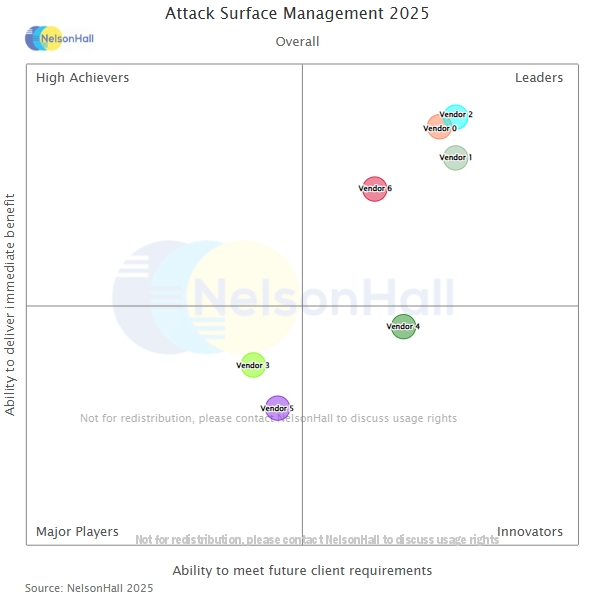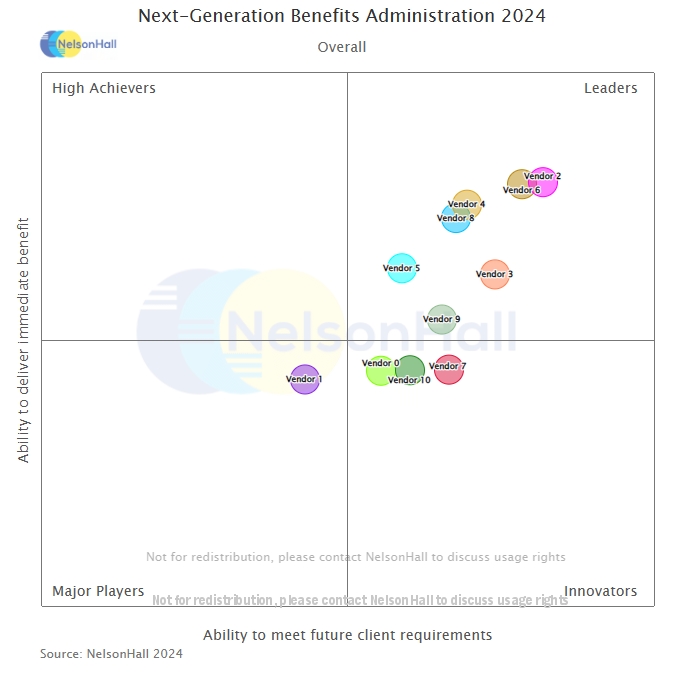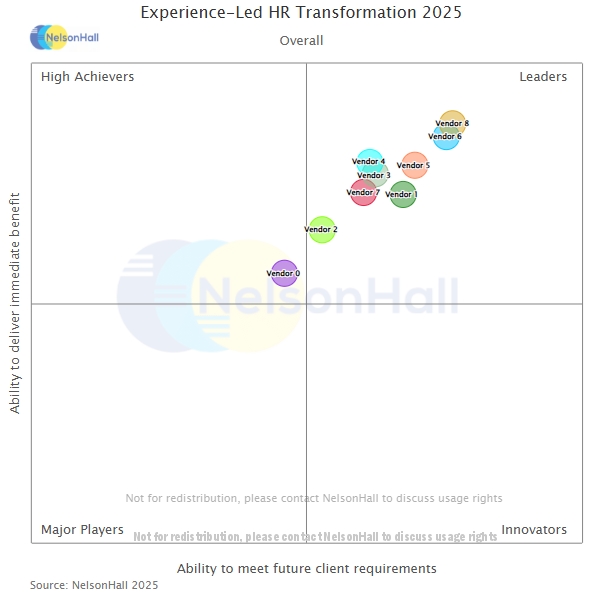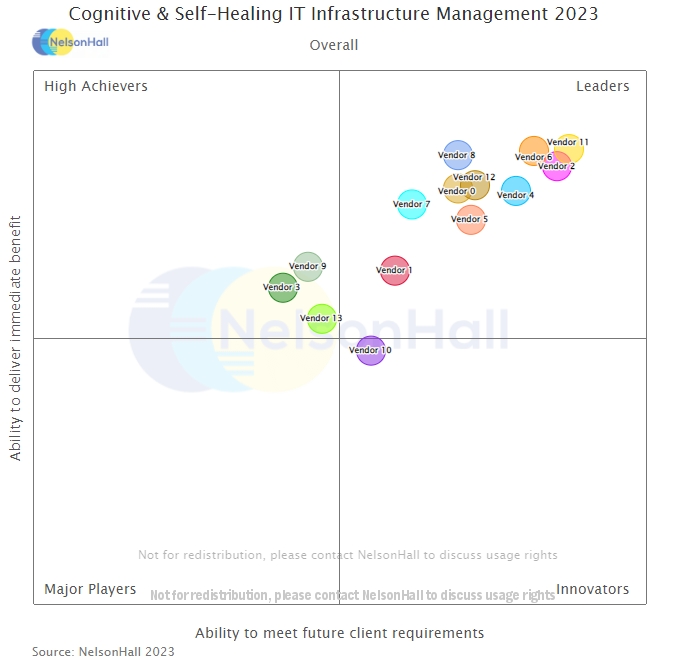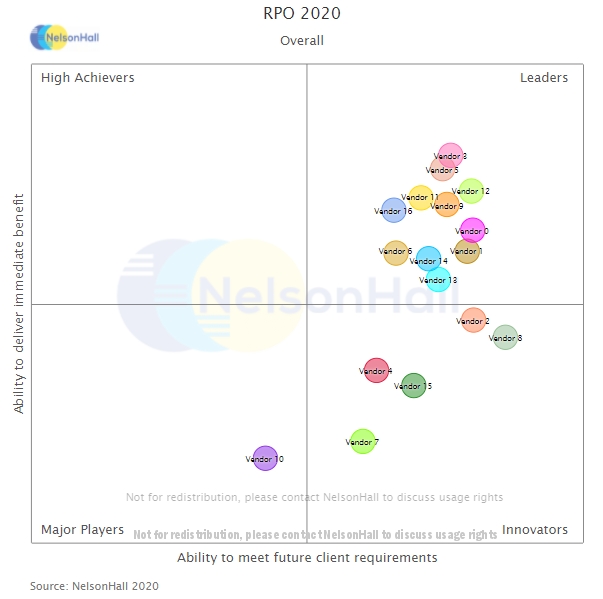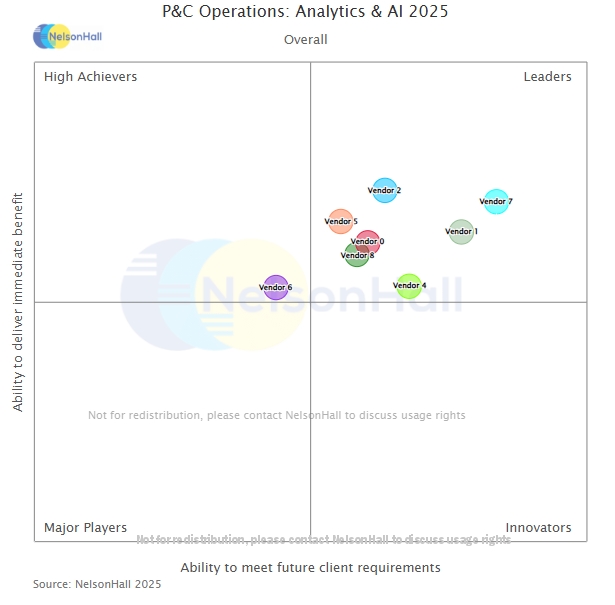login here to personalize:
latest NEAT reports:
view all NEAT reportsfeatured reports:
Conversational Commerce
May 13, 2025 | Market Analysis by Ivan Kotzev
NelsonHall’s market analysis of the Conversational Commerce market consists of 109 pages and focuses on strategies for 2025 and beyond. [...]view this reportdownload abstract
latest vendor assessments:
NelsonHall keeps tabs on all these vendors so that you don't have to do so, providing all the analysis of vendor capabilities that you require for shortlist selection
Genpact - Modernizing Procurement Through Digitalization
May 28, 2025 | Vendor Analysis by Vaibhav Wardhan
This vendor assessment analyzes Genpact's offerings and capabilities in procurement services [...]view this reportdownload abstractInfosys - ServiceNow Services
May 28, 2025 | Vendor Analysis by Gaurav Parab
This NelsonHall vendor assessment analyzes Infosys' offerings and capabilities in ServiceNow services [...]view this reportdownload abstractTata Consultancy Services - ServiceNow Services
May 27, 2025 | Vendor Analysis by Gaurav Parab
This NelsonHall vendor assessment analyzes Tata Consultancy Services' offerings and capabilities in ServiceNow services [...]view this reportdownload abstractExela Technologies - Strategic Insights in Revenue Cycle Management (RCM)
May 22, 2025 | Vendor Analysis by Bilal Chaudhry
This NelsonHall vendor assessment analyzes Exela Technologies' offerings and capabilities in Revenue Cycle Management (RCM) [...]view this reportdownload abstractInfosys - Modernizing Procurement Through Digitalization
May 20, 2025 | Vendor Analysis by Vaibhav Wardhan
This vendor assessment analyzes Infosys' offerings and capabilities in procurement services [...]view this reportdownload abstract
Latest on Twitter by @NHInsight:
Follow NelsonHall analysts to monitor ongoing developments in business process services




















